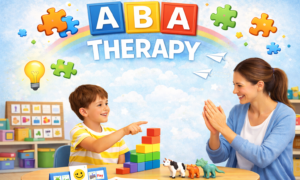In 2020, amid an unprecedented health crisis and rising rates of mental health issues, online therapy use massively grew in popularity. But what is online therapy’s position in 2023? And how have the recent privacy and regulatory controversies surrounding industry giants impacted the public’s perception?
COVID-19 and the surge of online therapy usage
Before March 2020, the use of telehealth in nations like the United States was steadily on the rise. However, its absolute integration remained low as logistics needed to be simplified and both patients and providers faced a significant amount of restrictions.
In Europe, digital health was being held back by a number of factors, including stern privacy regulations and patients unwilling to give up in-person visits. In Britain, growing workloads left little time to train on digital platforms.
On March 11 of 2020, the World Health Organisation declared the COVID-19 outbreak a pandemic. To curb the spreading of the virus, over 3.9 billion people from across 90 countries and territories had to remain confined to their homes. This radical change in everyday life coupled with economic worries and mounting uncertainty led to widespread mental health problems, with the global prevalence of conditions like anxiety and depression rising by 25%.
Therapy for mental health conditions was one of the many medical interventions disrupted by the pandemic, forcing it to adapt the way it operated. Consequently, practices expanded their mental health online services during the long months of lockdown while patient use of these services skyrocketed. According to data from telemedicine company Amwell, telehealth adoption in therapy and psychiatry rose from 80% before the pandemic to 96% in 2020, and 100% of individuals in psychiatry reported a willingness to continue using these digital services post-COVID-19.
Yet another phenomenon at the time was the astronomic surge in mental health and wellness apps’ downloads and usage. A study by the mobile data insights company Sensor Tower revealed that the top-ranking English-language mobile applications in the mental wellness category (Calm, Headspace, Meditopia, and Synctuition among others) received over 10 million downloads in April 2020—a 24.2% increase from pre-pandemic levels. Online counselling and therapy services platforms such as BetterHelp and Talkspace also saw a spike in enrollment, with the former reporting a 60% increase in its user base.
The advantages of online therapy services
The main benefit of online therapy is its accessibility and the flexibility it offers, as patients do not have to travel to the therapist’s location to get the help they need—something which was particularly useful during COVID-19 lockdowns. In general, it is a convenient option for those who experience mobility issues or mental health problems that make it difficult to leave their place of residence. For some individuals, opening up about their struggles from the comfort of their homes and through a digital device can be less overwhelming.
Online therapy has also positioned itself as a solution to the issue of economic accessibility. Affordable or free face-to-face therapy sessions are difficult to find, as private therapists charge anywhere from £40 to £150 per hour. By contrast, online therapy platforms offer more flexibility for those with limited budgets by allowing them to select shorter session times and live message options and providing discounts through referral links.
In addition, these platforms have a wide range of available treatments. When you have BetterHelp and Talkspace compared, you’ll notice that they feature treatments for anxiety, depression, addiction, and PTSD while also offering marriage counselling and couples’ therapy.
Several studies have rectified the benefits and effectiveness of online therapy. A study published in the Journal of Anxiety Disorders, for example, found that online cognitive behavioural therapy or CBT is just as impactful as in-person CBT. Yet another study in the World Journal of Psychiatry concluded that mental health assessments made via online therapy are as reliable as traditional, face-to-face assessments. Moreover, patients receiving online counselling report being satisfied with their experiences.
Limitations, privacy concerns and the lack of regulation
Despite its many benefits and proven effectiveness, online therapy doesn’t come without its downsides. Online therapy isn’t suitable for patients suffering from serious psychiatric illnesses and makes it difficult—even impossible—for therapists to provide direct assistance in the event of a crisis. By eliminating geographic restraints, online therapy makes the enforcement of legal and ethical codes especially challenging.
One of the main concerns when it comes to online therapy platforms and mobile apps is their lack of regulation. This can potentially leave users vulnerable to bad actors and misinformation. A study published by the National Library of Medicine, for example, identified various apps that displayed non-existent or incorrect suicide hotline numbers.
Controversy regarding privacy and data autonomy has also negatively impacted online therapy giants such as Talkspace and BetterHelp. In early 2020, Jezebel reported that the loosely regulated platforms had been sharing users’ sensitive data (mental health history, sexual orientation, and suicidal ideations) with third parties. Growing concerns about the handling of user data prompted US senators like Elizabeth Warren to demand mental health companies explain how their apps collected and used data.
In letters to both Talkspace and BetterHelp, several senators wrote, “Unfortunately, it appears possible that the policies used by your company and similar mental health platforms allow third-party Big Tech firms and data brokers, who have shown remarkably little interest in protecting vulnerable consumers and users, to access and use highly confidential personal and medical information.”
Despite BetterHelp’s reassurance to its users that the information collected would remain anonymous and help the platform to provide a better therapy experience, the FTC recently claimed that the online therapy giant used several tactics to share health data from over 7 million consumers with Facebook, Snapchat, Criterio and Pinterest for advertising purposes.
An uncertain future
From more accessibility to lower costs or even free online therapy, virtual counseling has a myriad of benefits that were well-documented before 2020.. Yet, the COVID-19 pandemic led to a rise in the popularisation and usage of mental health apps and online therapy platforms. In post-pandemic times, many people continue to find telehealth useful and providers are confident about its impact. However, the ethical and privacy concerns triggered by the Talkspace and BetterHelp controversies have made the public sceptical of these solutions. So is online therapy here to stay? Certainly, but its future remains uncertain until the industry matures and further regulation is introduced.



































